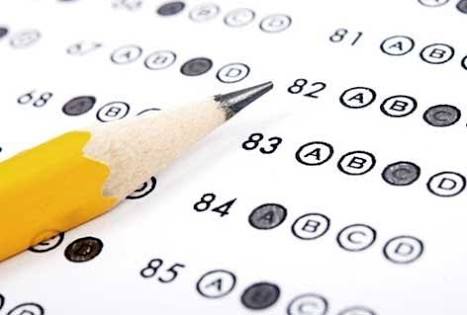Now that the midterms have started and most of the papers being Multiple Choice Questions(MCQ) based, to make things a little easier, I have compiled 6 strategies that are sure to get you through any tough exam, be it competitive or term papers.
But, of course, sufficient preparation for the exam is a prerequisite.
-
“Educated Guess”

Most of us have hit the blank wall when attempting an MCQ paper. Either all the options seem correct or all the options seem wrong and we go eliminating one by one from the most wrong to the least. Certain guessing skills and intuition will always come in handy. The one thing that we fail to do is to take an “Educated Guess”. To make an educated guess, basic knowledge is necessary.
-
Answering True (T) or False (F) Questions

Fact 1: In TF questions, T is a more common answer than F. There was an analysis done by William Poundstone, according to which, on an average 56% of answers are T and 44% are F.
Fact 2: The test designers have to put in a lot of effort to make false statements while true statements come to the mind easily. This results in a majority of answers being true.
Fact 3: Two same responses in a row TT or FF is less likely than TF or FT. The chance that the next answer will be different from the previous one is 63%. So guess twice!
-
A Little Trivia

Fact 1: If your question paper has questions with 4 choices ie. A, B, C or D; B is more likely to be correct with a probability of 28% instead of the actual 25% * 4.
Fact 2: If your question paper has questions with 5 choices ie. A, B, C, D or E; the correct answer is E (23%). The least commonly correct answer is C (17%).
Fact 3: If your question paper has questions with 3 choices ie. A, B or C; only your knowledge can help you. Because all the questions are equally likely to be correct.
Fact 4: As the number of questions increase, the bias toward the answer increases. Like mentioned earlier, it is very difficult to frame related false statements.
-
Universal Qualifiers
Questions with options like “none of the above”, “all of the above”, “always”, “never” are the easiest to answer. In Poundstone’s experiment, he found that such options were always correct in more than 52% of the occasions he tested this possibility.
-
English can be your Saviour.
The question and the answer will make sense grammatically. Always!
-
The Length of the Answer
The longest answer is more likely to be correct. This is because the test designers will tend to add extra “language” or “words” to the answer to make it seem more obvious.

These are just strategies to help you when the tide is high. As always hard work pays off. But, Smart work can never go out of style. A little less effort and a little more cleverness can take you heights!


















